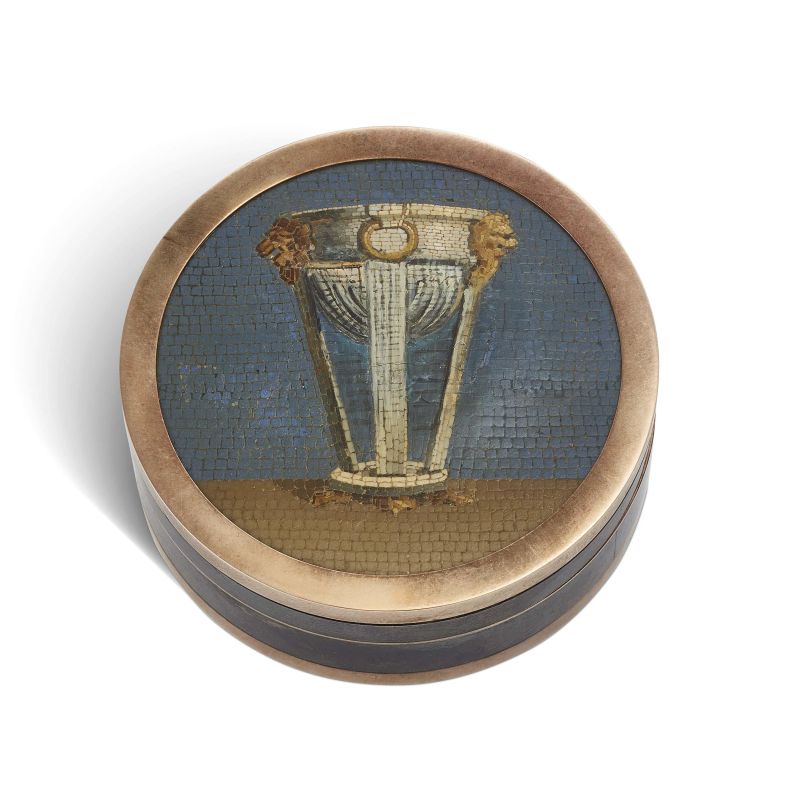Giacomo Raffaelli
(Roma, 1753 - Roma, 1836)
MICROMOSAIC ROUND SNUFF BOX BY GIACOMO RAFFAELLI
TABACCHIERA IN ARGENTO E ORO
in argento, con bordatura in oro, di forma rotonda, placca centrale con micromosaico su cassina in rame raffigurante un tripode, firmata sul retro "Giacomo Raffaelli Fece Roma 1783", dim. cm 6,5x6,5x2,5 circa, gr. 212
Raffaelli Giacomo (Rome 1753 - Rome 1836)
Mosaic artist active in Rome and Milan, founder of the small Roman mosaic. Belonging to a family of glassmakers in Via dei Cappellari in Rome where mosaic tiles were made for the Vatican. He was probably the inventor of the enamel spinning system from which the microscopic tiles with multiple shades of color used for the creation of micromosaics are obtained.
Raffaelli opened a shop selling micromosaic works in Piazza di Spagna in 1785 on the occasion of the Jubilee, in 1804 he founded a mosaic factory in Milan and returned to Rome during the Restoration period.
Among his works there are reproductions of Pliny's doves, an example of which is preserved in the British Museum, and of Leonardo's Last Supper, preserved in Vienna; a golden clock given by Pope Pius VII to Napoleon, preserved in the Hermitage in Moscow, a work piano depicting the shield of Achilles with the head of the Medusa, the restoration of the Byzantine mosaics in the Basilica of San Paolo following the fire.

